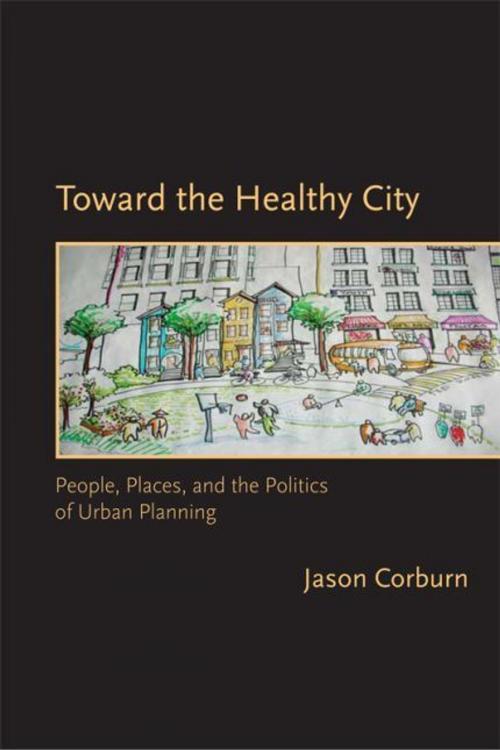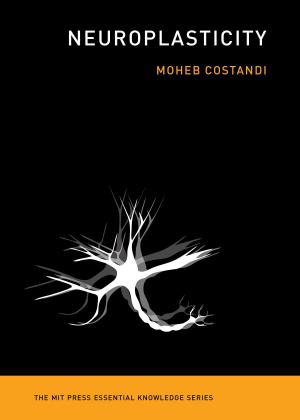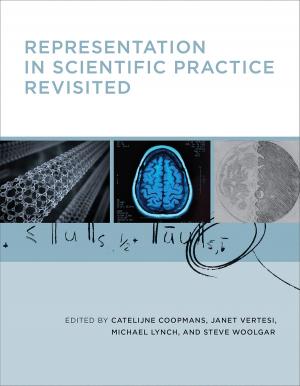Toward the Healthy City
People, Places, and the Politics of Urban Planning
Nonfiction, Health & Well Being, Medical, Reference, Health Policy, Social & Cultural Studies, Political Science, Politics, City Planning & Urban Development, Science & Nature, Nature| Author: | Jason Corburn | ISBN: | 9780262258098 |
| Publisher: | The MIT Press | Publication: | September 4, 2009 |
| Imprint: | The MIT Press | Language: | English |
| Author: | Jason Corburn |
| ISBN: | 9780262258098 |
| Publisher: | The MIT Press |
| Publication: | September 4, 2009 |
| Imprint: | The MIT Press |
| Language: | English |
A call to reconnect the fields of urban planning and public health that offers a new decision-making framework for healthy city planning.
In distressed urban neighborhoods where residential segregation concentrates poverty, liquor stores outnumber supermarkets, toxic sites are next to playgrounds, and more money is spent on prisons than schools, residents also suffer disproportionately from disease and premature death. Recognizing that city environments and the planning processes that shape them are powerful determinants of population health, urban planners today are beginning to take on the added challenge of revitalizing neglected urban neighborhoods in ways that improve health and promote greater equity. In Toward the Healthy City, Jason Corburn argues that city planning must return to its roots in public health and social justice. The first book to provide a detailed account of how city planning and public health practices can reconnect to address health disparities, Toward the Healthy City offers a new decision-making framework called “healthy city planning” that reframes traditional planning and development issues and offers a new scientific evidence base for participatory action, coalition building, and ongoing monitoring.
To show healthy city planning in action, Corburn examines collaborations between government agencies and community coalitions in the San Francisco Bay area, including efforts to link environmental justice, residents' chronic illnesses, housing and real estate development projects, and planning processes with public health. Initiatives like these, Corburn points out, go well beyond recent attempts by urban planners to promote public health by changing the design of cities to encourage physical activity. Corburn argues for a broader conception of healthy urban governance that addresses the root causes of health inequities.
A call to reconnect the fields of urban planning and public health that offers a new decision-making framework for healthy city planning.
In distressed urban neighborhoods where residential segregation concentrates poverty, liquor stores outnumber supermarkets, toxic sites are next to playgrounds, and more money is spent on prisons than schools, residents also suffer disproportionately from disease and premature death. Recognizing that city environments and the planning processes that shape them are powerful determinants of population health, urban planners today are beginning to take on the added challenge of revitalizing neglected urban neighborhoods in ways that improve health and promote greater equity. In Toward the Healthy City, Jason Corburn argues that city planning must return to its roots in public health and social justice. The first book to provide a detailed account of how city planning and public health practices can reconnect to address health disparities, Toward the Healthy City offers a new decision-making framework called “healthy city planning” that reframes traditional planning and development issues and offers a new scientific evidence base for participatory action, coalition building, and ongoing monitoring.
To show healthy city planning in action, Corburn examines collaborations between government agencies and community coalitions in the San Francisco Bay area, including efforts to link environmental justice, residents' chronic illnesses, housing and real estate development projects, and planning processes with public health. Initiatives like these, Corburn points out, go well beyond recent attempts by urban planners to promote public health by changing the design of cities to encourage physical activity. Corburn argues for a broader conception of healthy urban governance that addresses the root causes of health inequities.









![Cover of the book Taking [A]part by Jason Corburn](https://www.kuoky.com/images/2015/february/300x300/9780262328104-b4WW_300x.jpg)





